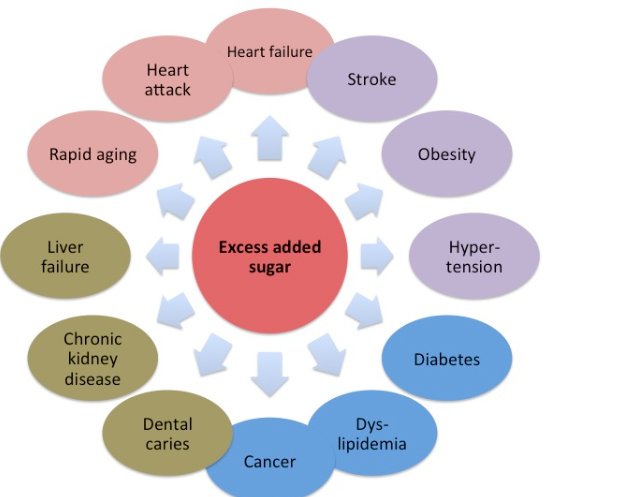Poverty and chronic inflammation work together to greatly increase the risk of dying from heart disease and cancer, two more well-known killers.
According to a new study, individuals with chronic inflammation who live in poverty have a more than twofold increased risk of passing away from heart disease—the nation’s top cause of death—within the following 15 years. According to senior researcher Arch Mainous III, a professor of health services research, management, and policy at the University of Florida’s College of Public Health and Health Professions, they also have almost three times the chance of passing away from cancer, the second-leading cause of death in the country.
According to a university news release, Mainous stated, “We found that poverty and high levels of inflammation act synergistically, giving people with both factors basically a double whammy.” “It increases their mortality rate significantly, and it does so within a relatively short time frame—just 15 years.” It’s normal for people to suffer brief periods of inflammation, which is part of the body’s healthy short-term immune response, researchers explained in background notes.
Also read-How Art Therapy Can Help During Menopause Transition

Poverty And Chronic Inflammation
But chronic inflammation lasts for months or years, and previous research has shown that it can increase the risk of developing health problems like cancer, heart disease, type 2 diabetes and kidney disease. Another study by Mainous estimates that as many as 35% of U.S. adults suffer from chronic , the researchers said. Chronic can be caused by a number of different factors: poor diet, stress, lack of exercise, bad sleep, smoking, aging, obesity, autoimmune disorders or exposure to toxins. For the new study, researchers evaluated data from a regular national survey conducted by the U.S. Centers for Disease Control and Prevention, which combines a questionnaire with lab tests.

The team focused on adults aged 40 and older whose household income was lower than the U.S. poverty line and whose lab tests showed elevated markers of it Researchers tracked these adults for 15 years, using death records to see how many died and for what causes. People with both chronic and economic poverty had a 127% increased risk of dying from heart disease and a 196% increased risk of dying from cancer compared to people without either factor, results show. Those with just one of the factors—either chronic it or poverty—had about a 60% increased risk of death.

The results highlight the need for routine chronic inflammation screenings, particularly in vulnerable populations, Mainous said. There are currently no guidelines for such screenings. “Investigators have been studying chronic inflammation for 25 years and we have a lot of data on its role in the disease pathway and mortality,” Mainous said. “We know it’s a problem, but we don’t do anything about it.”

“We need to translate the basic science on chronic inflammation to the doctor’s office through the creation of screening guidelines so physicians can identify chronic inflammation in their patients and work to treat the underlying causes,” Mainous added. “It is time to move beyond documenting the health problems that inflammation can cause to trying to fix these problems.”

Inflammation is a natural part of the body’s immune response. Acute inflammation is the redness, warmth and swelling around tissues and joints that occur in response to infection or an injury. That redness and swelling you get after cutting your finger on a piece of glass are visible signs that the body is repairing itself. When the injury is healed, the body turns off this inflammatory response.

Sometimes, low-grade inflammation persists, unchecked, for months or even years. This is called chronic inflammation. Unlike acute inflammation, which helps your body heal and then turns off, chronic inflammation does not switch off, which can damage the body’s tissues. This affects just about every part of the body and is a precursor to chronic diseases like type 2 diabetes, cardiovascular disease and more.

Also read-Kidney Stones Cannot Be Prevented By Highly Alkaline Water
images source: Google
Disclaimer: The opinions and suggestions expressed in this article are solely those of the individual analysts. These are not the opinions of HNN. For more, please consult with your doctor




































